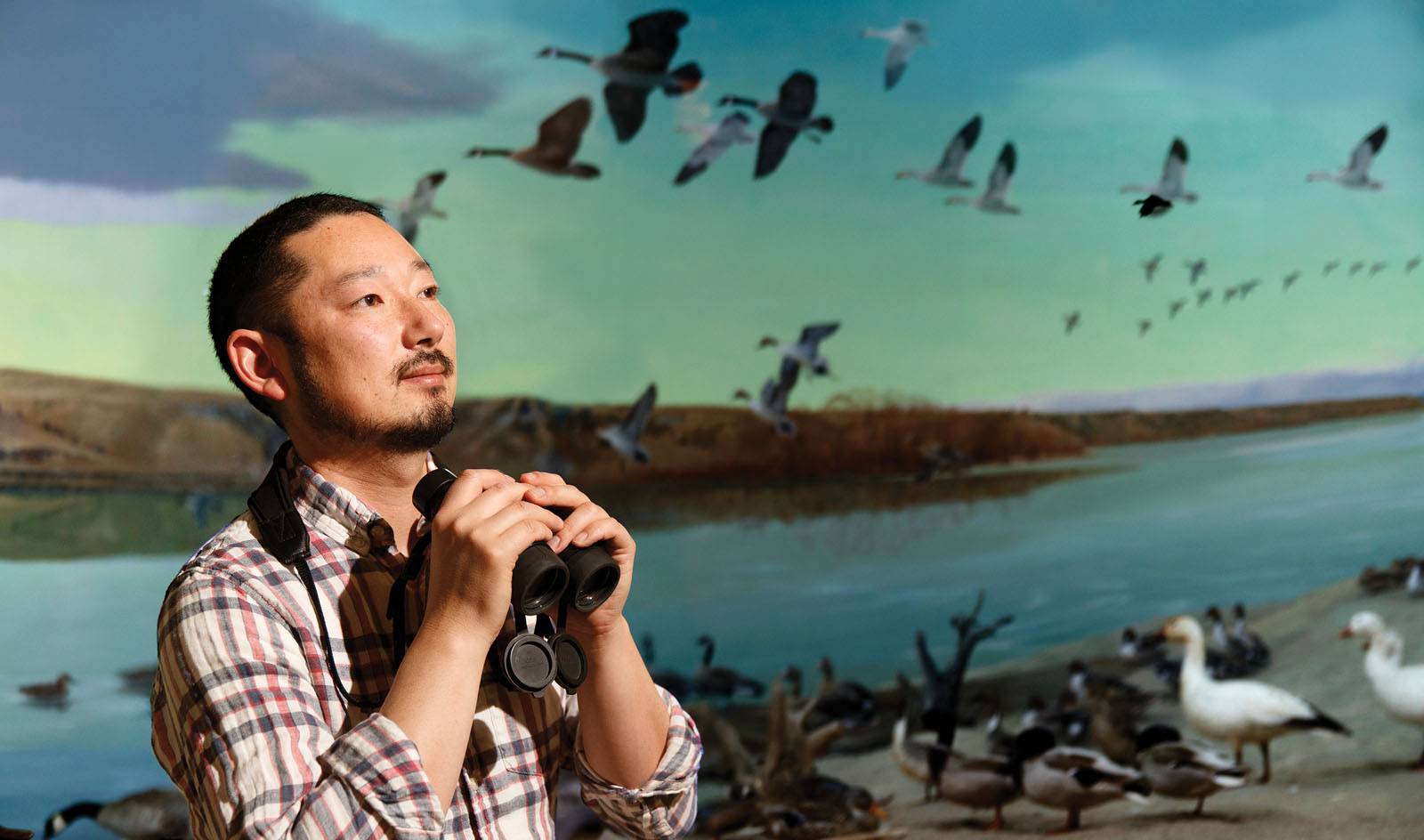Understanding Population Turnover and Birds’ Social Networks
Birds of a feather may flock together, but the flock’s makeup is always changing.
Population turnover – a universal process driven by birth, death, migration and dispersal – affects social networks of all kinds, from human to bird to cell. Yet many societies remain stable despite these demographic swings.
Understanding this network resilience is the focus of Dai Shizuka’s five-year, $681,870 Faculty Early Career Development Program award from the National Science Foundation, the prestigious CAREER award given to outstanding pre-tenure faculty. He also is exploring how population turnover shapes social networks and the relationship between social structure and social behavior. His work marks the first comprehensive look at these phenomena.

Shizuka, assistant professor of biological sciences, examines these questions through the lens of ornithology – the study of birds. He is leveraging his ongoing field research on golden-crowned sparrows to study links between population turnover and social selection. He’s also developing a model of network dynamics to simulate theoretical scenarios of population turnover.
His work sheds light on how disease and information spread through populations, and how social relationships impact evolution. It also lays the foundation for assessing the stability of myriad social networks, from humans to other animals to genes.
+ Additional content for Understanding Population Turnover and Birds’ Social Networks
Shizuka to explore how population turnover changes birds' social networks